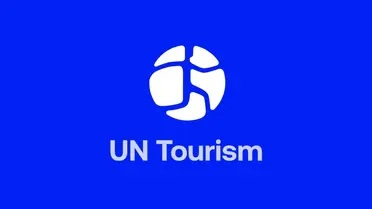The upcoming UN-Tourism executive council in Spain next week has a new responsibility to ensure the election, the transition period until the General Assembly in November, and the time the newly elected UN-Tourism Secretary-General will take office are covered. A highly conflicted Zurab Pololikashvili should not cover it.
Even after his government officially disqualified him from the election, he published the notice. Still, he instructed his s ecretariat to include his name in Agenda item 4, Recommendation by the Executive Council to the General Assembly of a nominee for the post of Secretary-General for the period 2026-2029.
Click here to download a PDF with all competing candidates’ agendas and CVs.
The Georgian government’s decision to withdraw support for Zurab Pololikashvili, followed by his strongly worded and emotionally charged letter, marks a fundamental shift in the dynamics of the UN Tourism Secretary-General race.

Several points now stand out:
1 . Loss of Political Legitimacy:Without his country’s backing, Pololikashvili’s candidacy loses not only formal support but symbolic legitimacy. The Secretary-General position at UN Tourism is deeply tied to geopolitical endorsement, and this fracture creates severe reputational damage.
2. Misuse of Office:His letter, signed as Secretary-General and not as a private Candidate, could be seen as a misuse of institutional resources and position. It blurs the line between the individual seeking a third term and the role of an international civil servant who is supposed to be neutral, especially in electoral matters.
3. Perception of Desperation and Institutional Overreach:The language and tone of the letter are unusually personal, emotionally charged, and borderline accusatory toward his own government. This could alienate member states who value diplomacy and institutional decorum.
4. Impact on the Executive Council Vote:The upcoming vote in the Executive Council could now pivot significantly. Many Member States had remained silent or neutral, partly due to fear of retaliation or inertia from the perceived inevitability of his re-election. Georgia’s U-turn could embolden those members to reconsider and rally around an alternative candidate with broader multilateral credibility.
5. Broader Implications for UN System Integrity:This entire episode highlights the risks of allowing individuals to overly personalize roles in multilateral organizations, especially when democratic checks are weak or absent. The outcry from within and outside the tourism sector reflects a more profound concern about governance and accountability in international bodies.
Government of Georgia decision
The recent decision of the Government of Georgia to formally withdraw its support for the candidacy of Mr. Zurab Pololikashvili for a third term as Secretary-General of UN Tourism represents a seismic shift in the ongoing electoral process. It signals a long-overdue moment of institutional correction. Georgia’s move, communicated officially to all member states, came as a surprise, but a welcome one to many in the international tourism community, which had expressed growing concern over pursuing an unprecedented and highly controversial third mandate.
Mr. Pololikashvili’s response
—a sharply worded letter criticizing his own government, signed not as a private individual or candidate, but as Secretary-General of a United Nations agency—is not only inappropriate, but also potentially in breach of the core principles and ethical code that govern the conduct of international civil servants.
In his letter, Mr. Pololikashvili laments Georgia’s decision as “unilateral” and “disrespectful” and decries the lack of dialogue or warning. However, he fails to acknowledge that this withdrawal is a sovereign political act, entirely legitimate, and rooted in the fundamental principle of member state responsibility. Worse still, by using the official voice of the Secretary-General to castigate his own publicly elected government, Mr. Pololikashvili has inadvertently validated Georgia’s very rationale for rescinding its support; he has acted in a politically biased manner, personally motivated, and institutionally incompatible with his role.
This behavior reflects a more profound, ongoing concern. For years, many within the organization and beyond have witnessed a style of governance that leans towards unilateralism and opacity. The decision to seek a third term, bypassing the spirit of leadership rotation and renewal, only reinforced those fears. This most recent episode, however, confirms that we are now beyond institutional strain—we are entering a zone of real risk.
Why does this matter?
Because Mr. Pololikashvili remains, for the time being, the Secretary-General of a UN agency, his inability to separate his ambition from his institutional function jeopardizes the neutrality and decorum required by the international office. It also raises serious questions about his capacity to manage the forthcoming stages of the electoral process, including the most sensitive one: the General Assembly.
If the UN-Tourism Executive Council vote is the battlefield of candidacies, the General Assembly is the arena of ratification. Its role is not merely ceremonial—it holds the final word.
But what happens if the candidate recommended by the Executive Council is not confirmed?This is precisely the procedural vacuum we now risk falling into.
There are reports—unsettling, but credible—that Mr. Pololikashvili has indicated to certain member states that he intends to remain ad interimregardless of the General Assembly’s decision, effectively threatening to override the institutional will of the Member States. This is an unprecedented proposition that must be taken seriously.
What needs to happen now? Two things, urgently:
1. Member states must agree on clear rules and contingencies:The procedural framework must anticipate and regulate what happens if the General Assembly does not confirm the candidate proposed by the Executive Council. There must be no ambiguity, no room for manipulation, and no space for self-proclaimed power extensions.
2. Safeguards must be implemented immediately:It is critical to ensure that the current Secretary-General does not use his position to influence or distort the process any further. That includes refraining from any public or internal communicationthat can be interpreted as campaigning or pressure. The credibility of UN Tourism—and of the UN system as a whole—is at stake.
A political shift
We are witnessing not just a political shift, but a moral and institutional one. Georgia’s decision has, paradoxically, breathed new legitimacy into the electoral process and given the international community a renewed chance to choose leadership that reflects the values of accountability, inclusiveness, and vision. But this opportunity must be safeguarded.
A UN official cannot claim immunity from rules while in office or impunity for how that office is used. If we allow this precedent to stand, the damage will be lasting, not only to UN Tourism but also to the faith member states’ place in multilateralism itself.
Zurab Pololikashvili’s controversial response
Mr. Polokishavili used the official UN-Tourism letterhead and official channels (UN resources) to deliver the following letter to members, citing the 25th General Assembly of UN Tourism held in Samarkand, Uzbekistan, and the 80% vote for him, which he had influenced entirely and misled to his advantage.
Dear Members of the World Tourism Organization, Dear Friends,
Today, I have the honour of addressing you—friends and colleagues with whom I have worked closely and fruitfully over the past eight years of my mandate—in relation to the letter transmitted by the Government of Georgia announcing the withdrawal of my candidature for a new term.
As a Georgian citizen and as a human being who has dedicated his life to international public service, I receive with deep regret the unilateral decision of the Government of Georgia to withdraw its support for my candidacy.
This announcement was not only unexpected; it was made in silence—without warning, without dialogue and without the slightest respect for the professional path I have worked so hard to build. How can I understand such a cold gesture, especially from a country I have represented with honour on the international stage?
This not only undermines the continuity of the work we have carried out together, but also the trust placed in me by the majority of Member States who supported both my candidacy and Georgia’s commitment.
Even more concerning is the way in which this decision was handled, which casts further doubt on the transparency and seriousness of the process: the letter by which the Prime Minister of Georgia communicated the withdrawal of support was signed on 6 May, but not transmitted until 14 May. This delay of more than a week is not only unusual—it casts a shadow of opacity and raises doubts about the good faith of the process.
Such manoeuvres—unclear, unexplained, and difficult to justify from an institutional perspective—reveal a troubling lack of respect for the Organization, its Members and, ultimately, for the principles of integrity and accountability that should guide all governmental action.
I am deeply saddened that my country—my Georgia—has chosen to support another candidature, disregarding the journey and the values that I have sought to represent as a Georgian before the world, committed to strengthening global tourism with an ethical and responsible vision.
Nevertheless, I remain confident that the international community will recognize the track record, principles, and commitment that have guided my leadership of UN Tourism. Today, more than ever, I continue to believe in peace, in integrity and in the value of one’s world.
To all those who have accompanied me on this journey and who have stood by me during these eight years, sharing in challenges and successes alike, I offer my deepest gratitude. Your support—especially during the 25th General Assembly of UN Tourism held in Samarkand, Uzbekistan, in October 2023, where 80% of the Members expressed their support for this project—meant more to me than words can express.
To my country, I can only say this: even with a wounded heart, I will continue to work for a fairer, more open, and human world.
With my warmest regards, Zurab Pololikashvili







